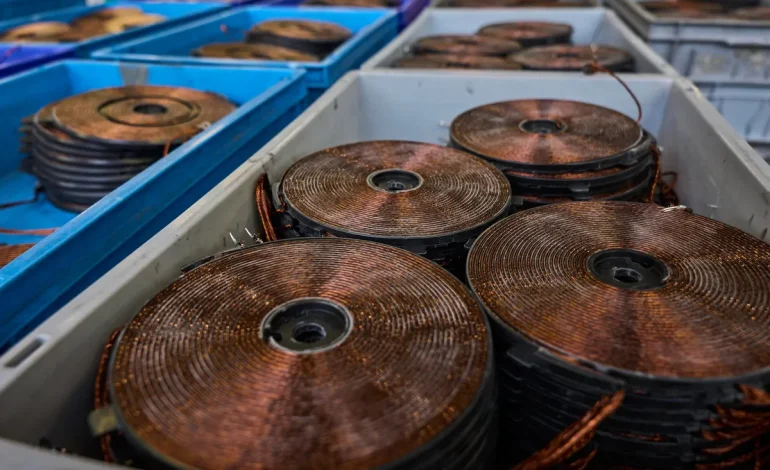President Trump’s push to bring factories “roaring back” to the US through a new tariff regime has reignited enthusiasm among manufacturing advocates.
However, while revitalizing manufacturing is a prominent part of his second-term agenda, experts suggest that focusing solely on manufacturing may not be enough to ensure a prosperous future for the US economy.
The decline of US manufacturing jobs is a well-documented phenomenon, with several factors contributing to the shift, including overseas production, policy changes, and advances in technology. In the late 1990s, for instance, a local Champion plant in upstate New York closed, relocating its operations to Mexico, a move that devastated the community. This shift mirrored broader trends as US manufacturers sought lower labor costs abroad.
Even globally, the landscape of manufacturing has shifted. In countries like China and India, which were once seen as the future centers of global manufacturing, the industry is now a shrinking portion of their GDP. Rising automation, aging populations, post-pandemic shifts, and changing consumer preferences—such as an increasing desire for experiences over goods—have all diminished manufacturing’s role in the global economy.
So, if the resurgence of manufacturing isn’t the answer to the US jobs crisis, where should the country turn instead?
One promising area is the services industry, particularly those leveraging emerging technologies. The demand for tech-enabled services, which include finance, human resources, product design, and supply chain management, is growing rapidly. Software-as-a-service platforms, which are central to business operations, are helping to fuel this expansion. Furthermore, the rise of artificial intelligence (AI) is expected to significantly boost this trend. Deloitte’s latest forecast suggests that global spending on AI will grow by nearly 30% annually in the coming years, further cementing the sector’s potential.
Services jobs, particularly in tech-enabled fields, could fulfill a similar role to that of manufacturing in the 20th century, offering good-paying opportunities for those without a college degree or the millions of college graduates who are underemployed. These jobs respond to the needs of a global, digital economy that has left companies scrambling to find skilled talent.
However, there is a significant challenge in ensuring that these jobs remain within the US Many of these roles have already been offshored due to a shortage of skilled American workers. Each year, around 300,000 tech-related jobs—spanning fields like application development, cybersecurity, and cloud computing—are moved overseas. To avoid losing these opportunities, the US must invest in training its workforce, particularly by expanding apprenticeship programs that combine paid employment with technical training. This can help bridge the gap for young Americans who might not have traditional tech backgrounds but have the potential to thrive in these industries.
While tech-enabled services offer great promise, the industry is still somewhat abstract compared to manufacturing, which involves tangible products. Yet, the shift toward a more service-oriented economy seems inevitable as the global economy evolves. To secure long-term prosperity, US workers must be equipped with the skills to excel in tech-driven fields.
For those who continue to push for a manufacturing comeback, it’s crucial to acknowledge the evolving dynamics. The push to reshore US manufacturing often overlooks that many of these jobs are already being lost to automation and the global competition created by countries like China. The US could benefit more by focusing its efforts on developing tech-enabled services, which are already becoming a cornerstone of the global economy.
The Hill, Bloomberg, and the Wall Street Journal contributed to this report.










The latest news in your social feeds
Subscribe to our social media platforms to stay tuned